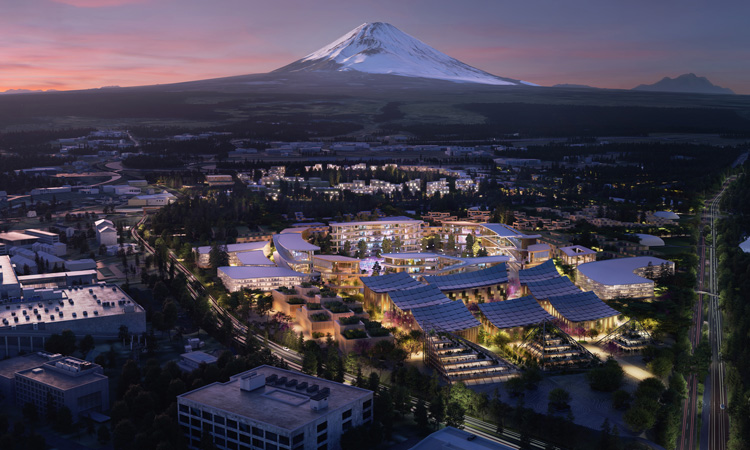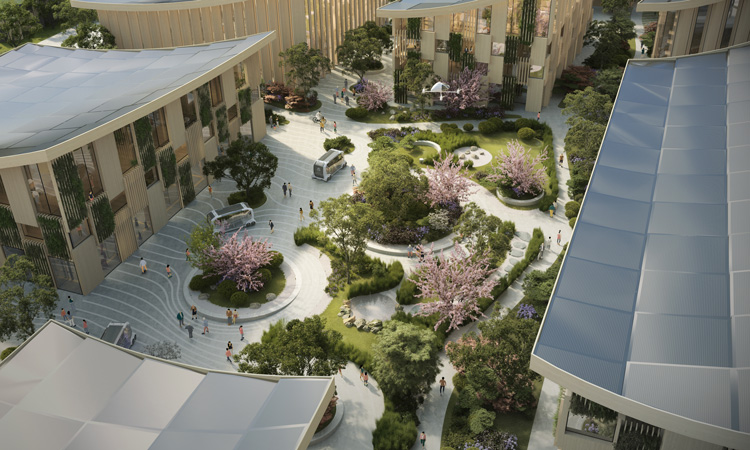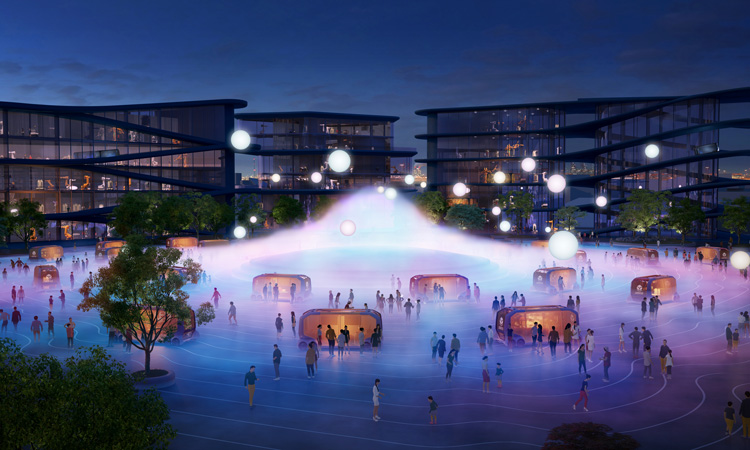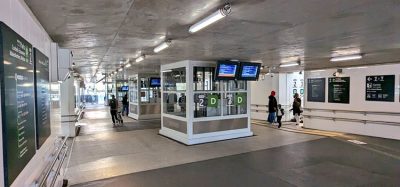Toyota announces plans to build ‘city of the future’
- Like
- Digg
- Del
- Tumblr
- VKontakte
- Buffer
- Love This
- Odnoklassniki
- Meneame
- Blogger
- Amazon
- Yahoo Mail
- Gmail
- AOL
- Newsvine
- HackerNews
- Evernote
- MySpace
- Mail.ru
- Viadeo
- Line
- Comments
- Yummly
- SMS
- Viber
- Telegram
- Subscribe
- Skype
- Facebook Messenger
- Kakao
- LiveJournal
- Yammer
- Edgar
- Fintel
- Mix
- Instapaper
- Copy Link
Posted: 7 January 2020 | Sam Mehmet (Intelligent Transport)
The Woven City will allegedly be a fully-connected ecosystem powered by hydrogen fuel cells with full-time residents and researchers.


Toyota Motor Corporation has revealed plans to build a prototype ‘city of the future’ on a 175-acre site at the base of Mt. Fuji in Japan.
Envisioned as a ‘living laboratory,’ the ‘Woven City’ aims to serve as a home to full-time residents and researchers who will be able to test and develop technologies such as autonomy, robotics, personal mobility, smart homes and artificial intelligence (AI) in a real-world environment.
“Building a complete city from the ground up, even on a small scale like this, is a unique opportunity to develop future technologies, including a digital operating system for the city’s infrastructure. With people, buildings and vehicles all connected and communicating with each other through data and sensors, we will be able to test connected AI technology… in both the virtual and the physical realms… maximising its potential,” said Akio Toyoda, President of Toyota Motor Corporation.


“We welcome all those inspired to improve the way we live in the future, to take advantage of this unique research ecosystem and join us in our quest to create an ever-better way of life and mobility for all,” Toyoda said.
“A swarm of different technologies are beginning to radically change how we inhabit and navigate our cities. Connected, autonomous, emission-free and shared mobility solutions are bound to unleash a world of opportunities for new forms of urban life. With the breadth of technologies and industries that we have been able to access and collaborate with from the Toyota ecosystem of companies, we believe we have a unique opportunity to explore new forms of urbanity with the Woven City that could pave new paths for other cities to explore,” said Bjarke Ingels, Founder and Creative Director of Bjarke Ingels Group (BIG), the commissioned architect of the project.
Design of the city
The masterplan of the city includes the designations for street usage into three types: for faster vehicles only, for a mix of lower speed, personal mobility and pedestrians, and for a park-like promenade for pedestrians only. These three street types are said to weave together to form an organic grid pattern to help accelerate the testing of autonomy.


The city is planned to be fully sustainable, with buildings made mostly of wood to minimise the carbon footprint, using traditional Japanese wood joinery, combined with robotic production methods. The rooftops will be covered in photo-voltaic panels to generate solar power in addition to power generated by hydrogen fuel cells.
Residences will be equipped with human support technologies, such as in-home robotics to assist with daily living. The homes will reportedly use sensor-based AI to check occupants’ health, take care of basic needs and enhance daily life, designed to create an opportunity to deploy connected technology with integrity and trust, securely and positively.
To move residents through the city, only fully autonomous, zero-emission vehicles will be permitted on the main thoroughfares. In and throughout Woven City, autonomous Toyota e-Palettes will be used for transportation and deliveries ,as well as for changeable mobile retail.
The beginning of construction for the site is planned for early 2021.
Related topics
Artificial Intelligence, Connected & Autonomous Vehicles, Infrastructure & Urban Planning, Passenger Experience, Sustainable Urban Transport, Traffic Management, Vehicle & Passenger Safety
Related cities
Japan
Related organisations
Bjarke Ingels Group (BIG), Toyota Motor Corporation
Related people
Akio Toyoda, Bjarke Ingels







